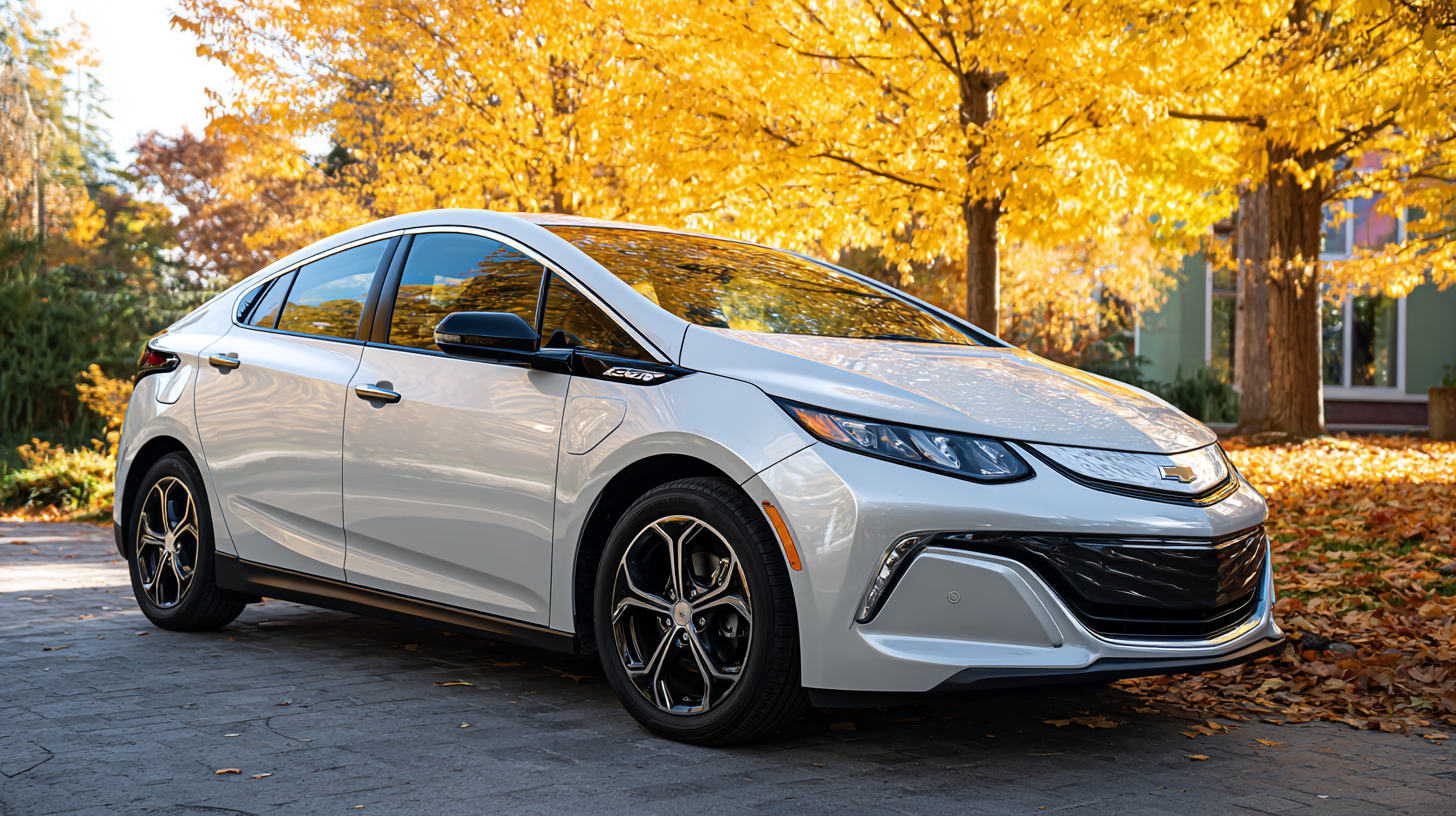As the automotive industry rapidly evolves, the demand for Affordable EV Cars has surged, reflecting a significant shift in consumer preferences towards eco-friendly and cost-effective transportation solutions. According to a recent report by BloombergNEF, electric vehicle sales are projected to reach 10 million units per year by 2025, driven by a new wave of affordable models that cater to the everyday commuter. The increasing availability of incentives and the declining costs of battery technologies are making it easier for budget-conscious consumers to transition from traditional gasoline vehicles to electric options. In this blog, we will explore the top strategies for selecting the best Affordable EV Cars that not only fit your budget but also meet your daily commuting needs, enabling a smoother and more sustainable driving experience.

When choosing an affordable electric vehicle (EV) for your daily commute, several crucial factors should be considered to ensure you select the best option for your needs. First, assess your daily driving distance. It’s important to choose an EV with a range that comfortably covers your commute without the anxiety of running out of battery. Many affordable models now offer a range of around 200-250 miles on a single charge, making them suitable for most daily drives, complemented by access to charging infrastructure at home or work.
Another critical aspect is the total cost of ownership. While the purchase price of an EV is significant, you should also consider potential savings on fuel and maintenance. EVs generally have lower operating costs compared to traditional gasoline vehicles. Investigating available incentives or rebates in your area can further reduce the upfront cost, making an EV even more affordable. Additionally, look into the reliability ratings and service options for various brands; some manufacturers may offer longer warranties or better customer service, which can be a decisive factor in your choice. By keeping these considerations in mind, you can find an affordable EV that not only fits your budget but also enhances your commuting experience.
When selecting an affordable electric vehicle (EV) for your daily commute, it's essential to consider models that offer both an impressive range and comfortable features. According to a recent report by the International Energy Agency, the demand for budget-friendly EVs has spiked, with affordable models now making up 25% of the electric vehicle market. These vehicles provide a perfect blend of efficiency and functionality, catering to the needs of daily commuters without breaking the bank.
Among the top contenders, the Hyundai Kona Electric stands out with an EPA-rated range of 258 miles on a single charge, making it ideal for those longer urban commutes. Additionally, it boasts a comfortable interior with advanced safety features, which enhances the overall driving experience. Another notable model is the Chevrolet Bolt EV, offering a range of approximately 259 miles and a starting price around $26,500, making it one of the most economical choices on the market today. These models highlight that embracing electric mobility doesn't have to come with a hefty price tag, providing an excellent combination of comfort and range for everyday drivers.
| Model | Price (USD) | Range (Miles) | Charging Time (Hours) | Comfort Rating |
|---|---|---|---|---|
| Model A | $30,000 | 250 | 6 | 4.5/5 |
| Model B | $28,000 | 230 | 5 | 4.7/5 |
| Model C | $32,000 | 270 | 7 | 4.6/5 |
| Model D | $25,000 | 220 | 4 | 4.3/5 |
| Model E | $34,000 | 300 | 8 | 4.8/5 |
When budgeting for your new electric vehicle (EV), it's essential to consider costs that extend well beyond the initial sticker price. A study by the Electric Vehicle Association reports that while the average starting price for an EV is around $40,000, ownership costs can vary significantly based on vehicle range, charging expenses, and maintenance.
For instance, drivers who select models with longer ranges might see enhanced efficiency, ultimately lowering their annual fuel costs.
Additionally, installation of a home charging station—often a necessary expense—typically costs between $500 and $2,000. According to the U.S. Department of Energy, home charging can reduce costs to as low as $0.50 per gallon equivalent of gasoline.
Furthermore, potential savings from federal and state incentives, which can reach up to $7,500, should not be overlooked; these can significantly ease the upfront financial burden. Evaluating these factors will provide a clearer picture of the true cost of owning an EV, enabling you to make an informed choice that fits your budget and commuting needs.
When considering the purchase of an affordable electric vehicle (EV), the availability and convenience of charging infrastructure plays a pivotal role in the overall ownership experience. According to a recent report by the International Energy Agency (IEA), the global number of publicly accessible charging points exceeded 1.3 million in 2021, a significant increase of 45% compared to the previous year. This expanding network is crucial for daily commuters who require reliable access to charging facilities, ensuring they can charge their vehicles without the stress of running out of battery.

Furthermore, the U.S. Department of Energy highlights that approximately 80% of EV charging occurs at home, making it essential for potential buyers to assess their living situation and local infrastructure when selecting an EV. For those without dedicated home charging options, proximity to public charging stations becomes vital, particularly for urban dwellers. Trends show that metropolitan areas with robust charging networks are increasingly accommodating EV ownership, as cities invest in fast-charging options that can replenish battery life within 30 minutes. By prioritizing charging infrastructure, you can significantly enhance your EV experience and ensure a seamless daily commute.
When considering an affordable electric vehicle (EV) for your daily commute, understanding the various incentives and rebates available can significantly reduce the overall cost. According to the U.S. Department of Energy, federal tax credits for electric vehicles can provide up to $7,500 off the purchase price, depending on the battery capacity. This incentive alone can make EVs far more financially accessible for budget-conscious consumers.

In addition to federal incentives, many states offer additional rebates or tax credits that can further lower your expenses. For instance, California provides up to $5,000 for eligible EV purchases through the Clean Vehicle Rebate Project. A recent report from the International Council on Clean Transportation revealed that through these combined incentives, buyers can save an average of 20% to 40% off the MSRP of new EVs. By leveraging these financial benefits, potential EV owners can not only help the environment but also take a significant step toward reducing their commuting costs.
